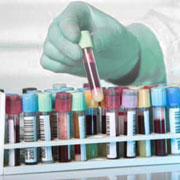Hair Loss Lab Testing | Austin, TX
Hair loss laboratory testing is essential for accurately diagnosing the underlying cause of hair loss and determining the most effective treatment approach. By analyzing blood samples and other diagnostic markers, we can assess hormone levels, nutritional status, thyroid function, autoimmune activity, and other key factors that may be contributing to hair loss.
This comprehensive evaluation allows us to identify any underlying medical conditions or imbalances that may be contributing to hair loss and address them with targeted interventions. Additionally, hair loss laboratory testing helps us monitor treatment progress over time and adjust treatment plans as needed to optimize results.
Once the underlying cause of hair loss has been identified through laboratory testing, Dr. Ruthie Harper, MD, can develop a customized treatment plan tailored to each patient’s specific needs and goals. This may include a combination of medical therapies, nutritional supplements, lifestyle modifications, and advanced hair restoration technologies to promote hair growth, improve scalp health, and prevent further hair loss.
Our goal is to provide patients with comprehensive, evidence-based solutions that address the root cause of hair loss and restore their confidence in their appearance. With our commitment to personalized care and advanced treatment options, patients can trust Dr. Ruthie Harper, MD, to help them achieve lasting results and regain a full, healthy head of hair.





